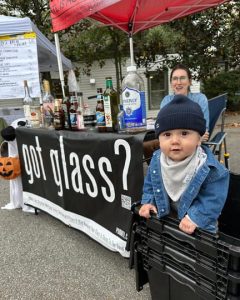By Keisha Hines
[singlepic id=174 w=320 h=240 float=][singlepic id=173 w=320 h=240 float=]
Farasi, a 22-year-old male African lion, passed on May 6, 2013. A beloved resident of Zoo Atlanta for nearly 13 years, Farasi was the oldest male African lion living in the North American population of pedigreed cats managed by the Lion Species Survival Plan (SSP). The Animal Management and Veterinary Teams made the difficult decision to euthanize the geriatric cat once it became apparent that age-related complications were compromising his quality of life.
“Farasi was a very special member of the Zoo Atlanta family. We’re all saddened by his loss, but we’re fortunate to have shared just a portion of his long and colorful life,” said Dwight Lawson, PhD, Deputy Director. “The fact that he lived to such an advanced age is certainly a testament to him, but it’s also a tribute to the animal care professionals who provided him with outstanding care and enrichment during his years with us.”
Born September 9, 1990 in South Africa’s Kruger National Park, Farasi was believed to have been orphaned or abandoned prior to his arrival at the De Wildt Cheetah Centre, where he received care as a young cub before moving to the San Diego Zoo Safari Park. He was transferred to Zoo Atlanta in June 2000.
The majestic Farasi was an impressive sight in the Zoo’s African Plains, but he was best known for his vocalizations. His trademark roar, which guests often mistook for a recording, frequently echoed in the park and in the surrounding Grant Park community as he established Zoo Atlanta as his domain. A second male lion’s voice joined the Zoo’s natural soundtrack in 2005, and Farasi and the much-younger Kamau could often be heard vocalizing back and forth.
Farasi also impressed his caregivers, demonstrating a remarkable aptitude for training even in his golden years. His training advances included voluntary nail trims, injections and blood draws from his tail.
African lions are currently listed as vulnerable, but populations have declined rapidly in recent decades, largely as a result of habitat loss and a reduction in the availability of prey species. Zoo Atlanta is an active participant in the Lion SSP, which seeks to maintain a self-sustaining, genetically viable population in North American zoos. Although Farasi sired offspring in San Diego, he never reproduced at Zoo Atlanta. The Zoo’s younger pair, Kiki and Kamau, produced a litter of three cubs in 2008.
As is the case with all animal deaths regardless of age, a necropsy will be performed through the Zoo’s partnership with the University of Georgia Zoo and Exotic Animal Pathology Service in the College of Veterinary Medicine.
FARASI VIDEO:
https://www.box.com/s/9ogse4d9kve9mi7et08v
password: lionmane









Comments are closed.